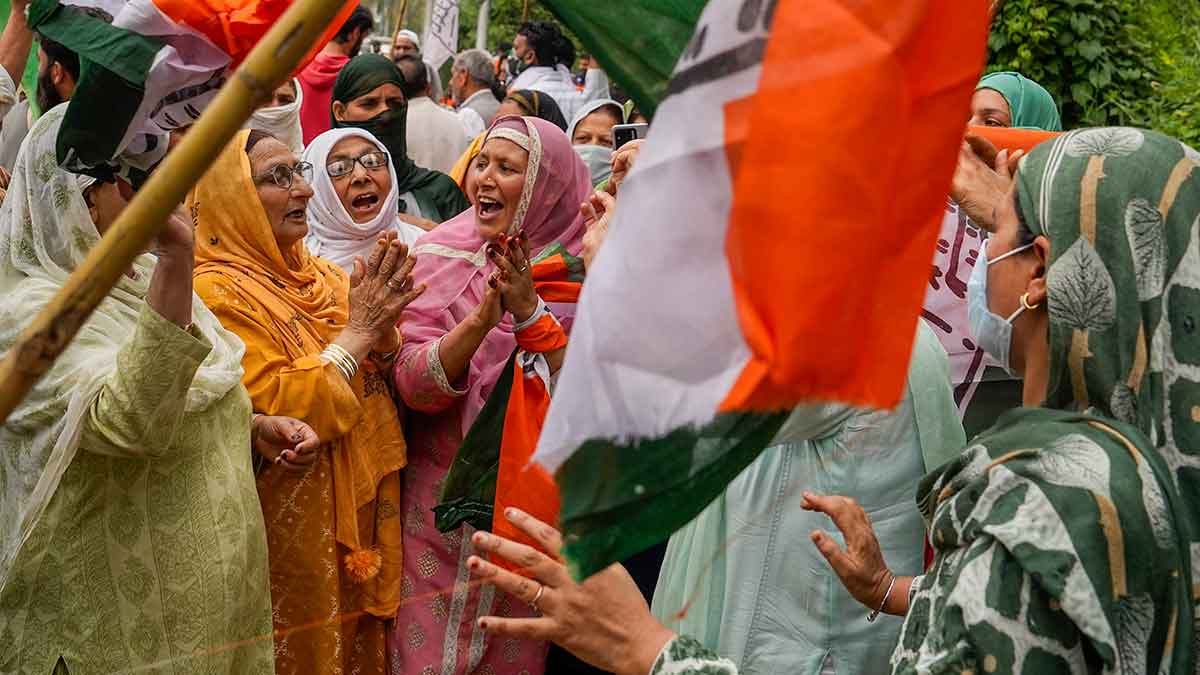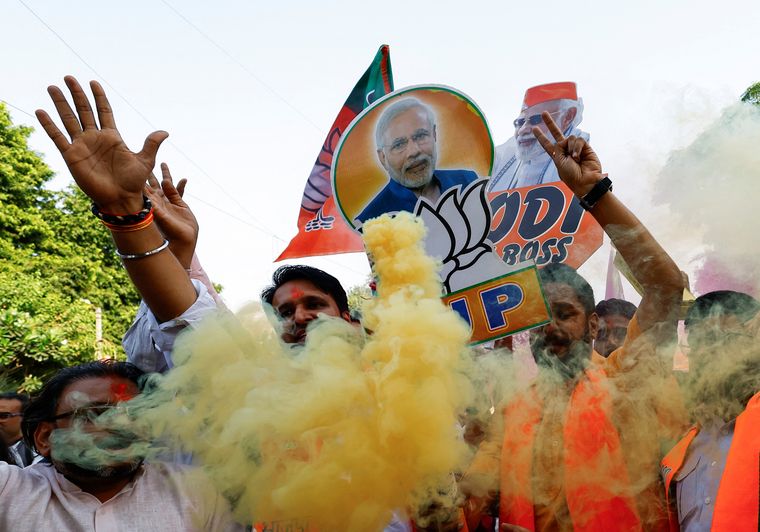It is a moment of catharsis for the common man in Jammu and Kashmir. A successful assembly election after a ten-year gap, with a majority vote for the National Conference-Congress alliance, reflects the belief of the people that the first election to choose a governance structure post the voiding of Article 370 was free and fair.
The return of the NC is like a sentient force breathing life into a peaceful but otherwise politically sterile void. Five years of lieutenant governor’s rule produced demonstrable outcomes, particularly a non-negotiable national security strategy that largely kept Pakistan at bay. But, within Jammu and Kashmir, it also created a barren political landscape where bureaucrats built roads but not relations, provided transparency but not accessibility, and people were seen but not heard.
Listening is a need in itself, and whoever had their ear to the ground during the polls heard the most. The elections were largely peaceful (with no major law and order or terror incidents reported), and the diverse outcome (the NC- Congress alliance celebrating victory; the BJP bagging seats in Jammu; and the People’s Conference, the Aam Aadmi Party and the CPI(M) winning a seat each) has helped the common man assert his identity that goes beyond the narratives of the past five years.
While the narratives around the removal of Article 370 and 35(a) and the rise of hindutva (and other smaller narratives around the reservation for Paharis, a community that largely lives in the mountainous regions, and the attempt to change voting patterns through delimitation) were what mobilised the electorate, the average Kashmiri was not just choosing from the known NC-Congress-PDP spectrum, but also trying to prevent the BJP from coming to power.
The assertion of the Kashmiri identity is now both complete and complementary to the Indian state. This is the key achievement of the Indian state in the first election after the abrogation of Jammu and Kashmir’s special status. It reflects the people’s understanding of the symbiotic relationship between democracy and elections, with the results corroborating free and fair polls.
This not only strengthens the national security strategy by countering Pakistan’s narrative of secessionist and militant tendencies in Jammu and Kashmir, but also reassures people across the region, whether in Kupwara, Kishtwar, Baramulla or Pooch, that they are living in a democracy.
The ripple effect of the J&K elections is being felt in the neighbouring Union territory of Ladakh. Voices like that of Sonam Wangchuk have reached Delhi, and demands of constitutional safeguards and statehood for Ladakh have grown. While these demands may have ruffled feathers in the national capital, intangible strategic gains have been made, as Ladakh becomes a part of the larger story of both J&K and India. The Pakistan-China axis around the Himalayas cannot ignore the sentiments that now bind these regions to New Delhi.
In the coming months, the demand for statehood, protection of land rights and tussle over more powers to the lieutenant governor will dominate the streets of J&K―as well as Ladakh, which remains closely tied to these issues. The outcome of the J&K polls demands a wiser Union government and a capable state chief minister, and the electorate would do well by guarding themselves against a new set of meta-narratives around religion, identity, freedom of speech, prestige and validation, which can again plunge the region into the dark days of militancy.
Electoral gains derive legitimacy from the behaviour of ruling parties. While voters may see the NC as an extension of their Kashmiri identity, they also remember the pre-stamped ballot papers found on NC supporters and the eerie silence after the alliance led by NC leader Farooq Abdullah recorded a landslide victory in 1987. That rigged election became one of the factors leading to militancy in the valley. Opposition leader Syed Salahuddin, his campaign manager Yasin Malik and their supporters were jailed―it was Salahuddin’s last election before he crossed the Line of Control to fight the Indian state.
The slogan ‘Tihar ka badla vote se (seeking revenge for Tihar with votes)’ echoed on the streets of J&K this time, with Engineer Rashid becoming the voice of separatists jailed in the past five years. But, after decades of violence, the Kashmiri voter is now more mature. Neither Rashid, nor the banned Jamaat-e-Islami, which tried to woo voters after decades of boycotting polls, managed to sway the electorate with their grey-zone tactics.
But before celebrating the clear-cut nature of the J&K elections, it is important to remember that the current peace is at odds with Pakistan’s already rigged approach to Kashmiris. What is unnerving is that, domestically, the calls for resuming talks with Islamabad have begun even before the new chief minister has taken office. With Parliament having paved the way to complete J&K’s integration to India by voiding Article 370―with a resolution passed in 1984 declaring Pakistan-occupied Kashmir as part of India―any move to allow Pakistan to put Kashmir back on the table in a bilateral engagement would be self-defeating. Also, any deviation by the state government from the country’s foreign policy could undermine national security interests. But, it would be a win-win situation if India and Pakistan can prioritise talks on trade and counter-terror operations.
Also Read
- J&K: Abdullahs return to power after 16 years, but Omar will have to walk the tightrope
- 'Election result a rejection of what BJP has done to J&K': Omar Abdullah
- Decoding Haryana and Jammu-Kashmir assembly election results
- How BJP beat anti-incumbency in Haryana
- How BJP is working to consolidate its future after Lok Sabha debacle
- Haryana and J&K results come as a reality check for Congress
Before capitalising on the electoral gains, the ruling BJP at the Centre must focus not only on understanding the pulse of the people, but also on listening to their heartbeats, as their wounds are yet to fully heal.
“Everyone is a leader, no one is a worker,” said an ordinary Kashmiri―a statement that political parties in both J&K and Haryana should take to heart. The parties involved may be different, but the people’s sentiment is similar. In Haryana, where the Congress suffered a shocking defeat and the BJP won an unprecedented third term, the meta-narratives of farmers’ protests, the Agniveer scheme and a strong Congress wave failed to alter the public mood. As Chief Minister Nayab Singh Saini tuned into grassroots issues, offering jobs and other sops free from favouritism and bribery to Other Backward Classes (bina parchi, bina kharchi naukri), the Congress strategy failed because of lack of grassroots support.
Whether it was wrong choice of candidates (too many leaders, too few workers) or an over-reliance on narratives that drowned their own messaging, politicians in Haryana have been jolted awake. The political class has a lot to learn, as they prepare to set the tone for the next round of assembly elections in Maharashtra, Jharkhand and Delhi. A common lesson for them: the popular strategy of spinning powerful meta-narratives for the ears of the electorate is evidently unreliable. What is needed now is for them have their ear to the ground.



